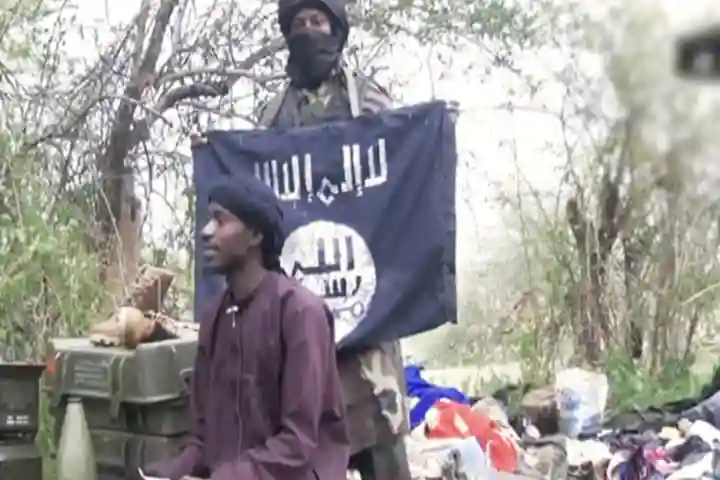In a big blow to radical Islam, the leader of the Islamic State West Africa Province (ISWAP) Abu Musab al-Barnawi is dead, Nigeria’s top general has said.
“I can authoritatively confirm to you that Abu Musab is dead,” Lucky Irabor, the chief of defence staff, told reporters at the presidential villa in Abuja, without elaborating.
ISWAP, led by Al Barnawi since 2016, is an offshoot of the infamous Boko Haram terror group, which has created havoc in West Africa.
Analysts believe that the death of Al Barnawi is expected to have a positive impact on the region. The terror master controlled large swathes of territory, imposed taxes on the local population. He also earned substantial income by controlling fishing in north Borno areas, apart from funding and material support that he received from ISIS, the Nigerian newspaper Daily Trust reported.
Al-Barnawi had also established many nodes in the Lake Chad islands—the launching pad for attacks in three countries—Nigeria, Niger and Chad.
The daily said that Al-Barnawi had died in late August but did not give any details.
Al Barnawi’s death has delivered yet another heavy blow to the Islamist movement in West Africa. Boko Haram leader Abubakar Shekau was killed in May. Adnan Abu Walid al-Sahrawi of Islamic State in the Greater Sahara (ISGS) has also died this year.
Al Barnawi rose to the highest rank in ISWAP after a bitter power struggle with Shekou, who pledged allegiance to the Islamic State in 2015. But ISIS passed on the leadership mantle to Al Barnawi, who had a wide following in Boko Haram. Al Barnawi’s father was Muhammed Yusuf, the founding father of Boko Haram. As a result, Al Barnawi inherited the loyalty of many Boko Haram fighters after Yusuf was killed by Nigerian police in 2009, sparking a nationwide insurrection.
The ISIS which was in the lookout to co-opt Boko Haram, finally chose Al-Barnawi as ISWAP leader over the rebellious Shekou.
India Narrative had reported earlier that Shekou was killed in May after ISWAP assaulted his stronghold in the Sambisa Forest area.
According to the Nigerian news website HumAngle, after his bodyguards were killed or captured, Shekau surrendered, and tried to cut a deal with ISWAP. But after he was asked to issue a humiliating surrender statement, Shekau blew himself up, detonating a suicide vest that he was wearing. All people present during the negotiations were also instantly killed.
Also Read: Notorious Boko Haram terror chief Abubakar Shekau dies amid bitter power struggle
"Africa is going to be the battleground of jihad for the next 20 years and it's going to replace the Middle East," BBC quoted US State Department's coordinator for counter-terrorism, ambassador Nathan Sales as saying.
Also Read: "Global forces" need to come together in terror fight with Islamic State in Africa
Since Shekau’s death, the Nigerian armed forces say that thousands of Boko Haram fighters have surrendered to them, Reuters is reporting.
Last month, France announced that its forces had killed the ISGS leader al-Sahrawi. ISGS is Islamic State’s affiliate in the Sahel, a strip of land below the Sahara Desert that includes countries such as Mali, Niger and Burkina Faso.




















